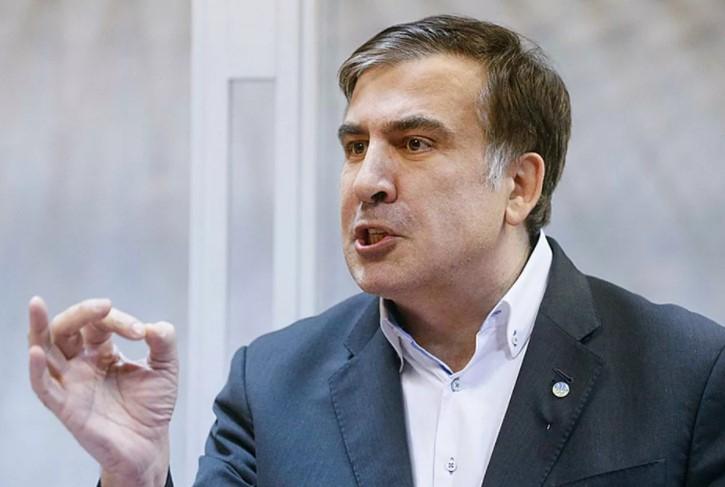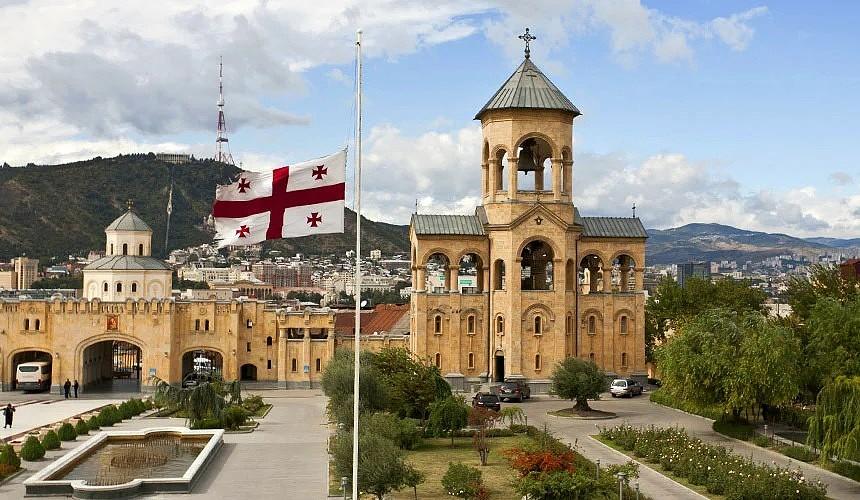"Georgia should take a closer look at Turkic countries' cooperation" Nikoloz Vashakidze hosted by Caliber.Az
Caliber.Az presents an interview with the former Georgian first deputy foreign minister, former Georgian National Security Council deputy secretary and the chairman of the political council of the European Democrats of Georgia party Nikoloz Vashakidze.
- Former Georgian President Mikheil Saakashvili announced through his lawyers that he would leave Georgian politics if he was released from prison and allowed to leave the country. Do you think that Saakashvili will really leave Georgian politics, given the fact that his party – the UNM [United National Movement] - invariably takes second place in the elections?
- Yes, Saakashvili's lawyers did say so, referring to their client's position. However, he personally has not yet clearly voiced this himself. Based on this, the UNM party leadership stated that it would still wait for his words directly before developing a party position on this issue.
The Georgian authorities have not yet openly expressed their consent to such an agreement, rather the opposite. In general, certain omissions still exist, and it is difficult for me to judge what all this will eventually result in.
According to numerous reputable doctors, the ex-president's condition is really serious, and he needs highly qualified assistance, preferably abroad.
Whether Saakashvili will depart from Georgian politics for good, I can't say, I just don't know. This is his personal decision.

- You are a career diplomat who worked in the Foreign Ministry and in the government of Mikheil Saakashvili and the government of Bidzina Ivanishvili. How would you characterise the priorities of Tbilisi's foreign policy recently? The opposition, for example, accuses the current authorities of pursuing a non-irritation policy toward Moscow.
- I worked in the Foreign Ministry and in the government both during [former President Eduard] Shevardnadze and under Saakashvili. I was in the government of Bidzina Ivanishvili for a very short time, I resigned from the position of deputy foreign minister in January 2013. In a very short time, I realised that I was not in the [same] way as him, and time has convincingly shown that I was right.
Georgia's foreign policy under the rule of the Georgian Dream is passive. In fact, this is not even a policy, but a sluggish adherence to the calendar, and protocol events. Georgia, unfortunately, does not act as a clear and active partner against the backdrop of intense, fateful processes taking place both globally and in our region, and this is precisely the role that is now required of it.
The reason for this state of affairs is, on the one hand, the Georgian ruling power's profound strategic incompetence, and on the other, the so-called policy of non-aggression that you mentioned. Despite the loudly announced diplomatic breakthroughs, this naive policy brought nothing significant to Georgia. Russia is still continuing the borderization of the occupied regions while grabbing the next pieces of our territory. After Moscow's total ethnic cleansing of these lands, the illegal military presence and annexation of these lands continue.
In a nutshell, Georgia's foreign policy, when combined with the country's recent history of European Union candidacy, must be regarded as a failure.
Anticipating all this, it is not surprising that I did not want to participate in it.
- What is your opinion about the fact that Georgia has not been granted the status of a candidate for EU membership? What prevented this?
- The process of integration into the EU implies the fulfilment of certain requirements and a real approximation to certain standards. These requirements and standards are primarily related to the construction and strengthening of genuine democracy in the country, in the establishment of democratic institutions and practices. The problem is that the system of government established in Georgia, by and large, is incompatible with the above-mentioned standards since their real implementation implies its dismantling. For several years, the ruling party managed at least, with the help of formal, cosmetic steps, to create the appearance of progress, but by the time of the decision to grant candidate status, the limit of manoeuvring with facade-cosmetic, secondary movements was exhausted. In all its obvious ugliness, serious, fundamental problems have surfaced, such as the deplorable state of the justice system, falsification and serious violations during elections, the systematic and steady elimination of opposition and free media, violence against journalists, deep problems with the rule of law, non-fulfilment of agreements reached with the participation of the European Union, etc. The most important problem is the illegal nature of power - informal, anti-democratic, oligarchic rule, which, in turn, is one of the main reasons for the extreme polarisation and unacceptable degree of tension in the political life of the country.
All these problems were clearly indicated to Georgia by the European Commission in the well-known 12 paragraphs, which set out the conditions that the country must meet in order to obtain candidate status.

- Georgia and NATO. Is there any hope for the country's accession to the Alliance in the foreseeable future?
- We should be well aware that this and many other important issues concerning not only Georgia are being resolved on the battlefields in Ukraine. The final result of this war will significantly determine the future architecture of European and world security. So far, we have observed that Russia's aggression has led to a strengthening of the role of NATO, its further expansion and its greater filling with real military-political content.
I think that the most important task of the post-war period will be to ensure reliable and long-term security, including in our region. In theory, NATO should play a significant role in this issue, although alternative options are also possible.
In any case, all possible steps should be taken to end the military-political uncertainty and establish a situation of stable stability.
- How would you characterise Tbilisi's relations with Baku and Ankara?
- I believe that Georgia should restore its full participation in the Tbilisi-Baku-Ankara triangle. I think that this triangle is a reliable guarantor of security in the region. Therefore, I think that after the change of power in Georgia, which I hope will happen, relations and cooperation with Türkiye and Azerbaijan should not only return to their former intensity but also raise them to a new, even higher level.
I also believe that Georgia should carefully look at the strategic cooperation between the Turkic countries, which is being intensively promoted by Ankara, and look for ways and forms of its participation in it. Of course, Georgia is not a Turkic country, but it is connected with these countries by deep historical and modern traditions of friendship and cooperation, it is an organic and important part of the region. So, I think it is quite possible to find ways to participate in this process in the 21st century. The participation of a non-Turkic state will only increase the international prestige of this format of cooperation and trust in it. In addition, it will help in the important matter of mutually beneficial involvement of Armenia in multilateral regional cooperation and in the harmonisation of its relations with its neighbours.








